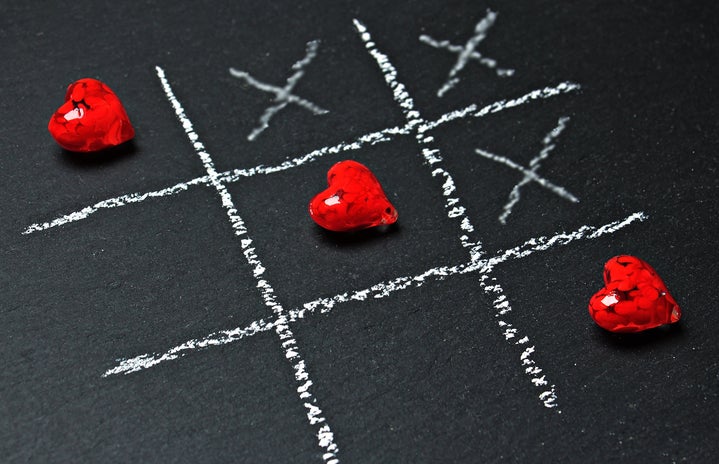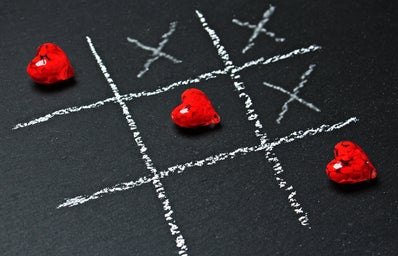What Is Queer?
I’m not 100% sure what the word “queer” means. So why am I writing about it? Well, that’s the point. It’s an important term when discussing gender and sexuality, and there are a lot of grey areas surrounding it—and some people don’t even know it exists! So it’s necessary to explore and learn about.
If you look up “queer” on Dictionary.com the first definition reads: “strange or odd from a conventional viewpoint; unusually different.” The queer I’m talking about is a little bit different, though. It is linked to the LGBT community, but is also separate. New York University senior and Social and Cultural Analysis major Emma said, “Queer functions as a sort of other. I’m not positive what this other is, but mostly I believe it exists outside of the heteronormative…and the homonormative narratives that society thrusts upon us.”
The acronym LGBT, which stands for Lesbian, Gay, Bisexual, and Transgender, leaves some people feeling invisible, because they don’t identify with any of those labels. In these instances, the word queer is absolutely essential. “Whereas I think LGBT is a sexual/gender identity,” Emma said, “I believe that queer is sexual/gender with theory, politics, and dance parties added.”
But is queer a negative word?
Well, it has been used with negative connotations, and some people still view it that way. The director of New York University’s LGBT Student Services, Monroe France, explained that “first and foremost, the word queer still remains a derogatory term for some people.” Because it is a word that was co-opted in such a derogatory way for so long, for some people, it remains a slur. If one has memories of the word being used as a put-down to make them feel less-than, it’s understandable that one wouldn’t want to identify with it. This issue also differs depending on your location, mindset, and social circle. For example, my British aunt was horrified when I mentioned a course I’m taking called Queer Literature. “You can’t say that word here,” she shushed me, “here” meaning England. Apparently the show Queer Eye for the Straight Guy was taken off all British TV channels because the term is still considered extremely offensive in Britain. The integral point is this: choosing not to identify with the word queer is as valid a choice as choosing to identify with it.
So what’s up with queer now?
The word queer now is often used to get rid of limits and limitations. France made a point to say that “Queer is a term that is most often used by activists and academics, and that can make it…not accessible to some people.” It is often viewed as a more fluid and all encompassing identifier than many others. I have a close friend who explained to me that she tells most people she identifies as bisexual, because it is a label that is more easily understood, but truthfully, she “feel[s] like queer is a much more holistic way of approaching things, since I am not only attracted to men and women, binary, but also trans-gendered people…it’s just that most people don’t like hearing that explanation.” When it comes to bisexuality, people who identify with the word queer have differing opinions. For someone who has trouble believing in the gender binary (the idea that only two strict genders exist) the idea of bisexuality can feel incongruous. However, identification is an intensely personal decision, and if you feel more comfortable identifying as bisexual than queer, obviously that’s completely fine. France pointed out that you can actually identify as bisexual and queer, and that in itself is queer, because the world is constantly asking us to choose just one sexual identity! He also stressed that the word “identity” begins with the letter “I.” “It’s about you and where you live in the world,” he said. “I don’t want to take that away from someone.” He views his role as an educator as a way to give people the opportunity to learn about their options when it comes to labels.
So what’s my label?
Well, I can’t tell you. As I’ve (hopefully) made clear, when it comes to sexual identity and gender presentation, the choices we make are intensely personal. In an ideal world, labels would be unnecessary, but for now we rely on them as a way to let the world understand us in some sense. It can feel damaging or cumbersome when the outside world slaps a label on you that doesn’t fit, but it is the ultimate empowerment to choose a label that feels right for you and introduce yourself to the world in that way.
Many of the people I spoke to who identify with queer stressed that they didn’t feel the need to force the word on family members or friends who didn’t understand it. “I mostly use ‘queer’ among other queer/LGBT folks,” Emma said. “I don’t feel the need to correct [people].” Using the word can be powerful, though. “It can make people pause,” France said. “In our moment in history, using the word is a political act.”
So whether you are perfectly comfortable identifying as a straight girl, or if after reading this article you feel like the word queer has provided you with an understanding about yourself that you didn’t have words for before, the choice of which labels to use is entirely up to you. I don’t have any of the answers…but in the end, that sense of questioning is the answer.
Sources:
Emma, senior Social and Cultural Analysis major at New York University
Monroe France, Director of New York University’s LGBT Student Services

